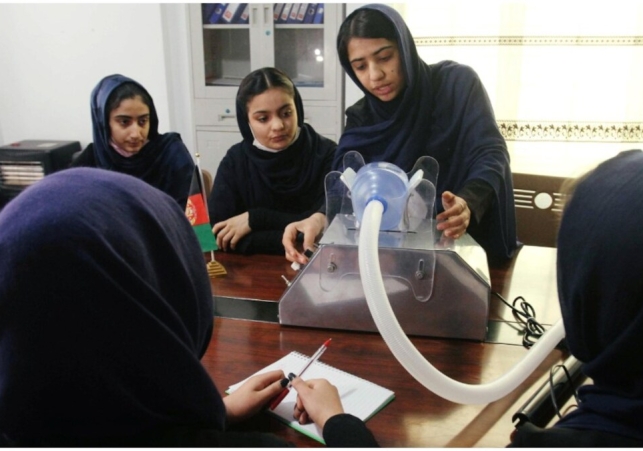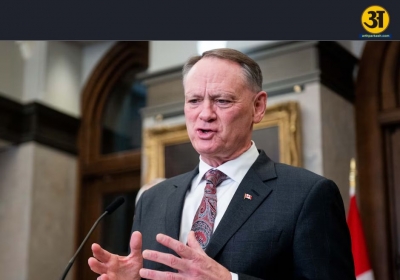
Afghan Student Somaya Faruqi Struggle for Education
Afghan Student Somaya Faruqi Struggle for Education Highlighted in UN Campaign
Background and Crisis
Somaya Faruqi, a young engineering student, was forced to leave Afghanistan when the Taliban regime regained power two years ago. The Taliban's decision to ban over 1.1 million girls and women from educational institutions has triggered a crisis in Afghan girls' education. As the two-year anniversary of the fall of Kabul's internationally recognized government approaches, the UN's Education Cannot Wait global fund has launched a campaign named #AfghanGirlsVoices to address this critical issue and advocate for the right to education for all Afghan girls and women.
Somaya's Journey and Educational Pursuits
Faruqi, now residing in the United States, represents the face of this campaign. She and her robotics team, "The Afghan Dreamers," fled Afghanistan in 2021 and completed their high school education in Qatar. Despite the challenges, she secured a scholarship from Qatar that enabled her to begin her second year of engineering studies at Sacramento State University in California.
The campaign, under the hashtag #AfghanGirlsVoices, aims to draw global attention to the education crisis faced by Afghan girls. The initiative acknowledges that Afghanistan is at risk of being overlooked amid global concerns and crises. Countless Afghan girls and women have been forced to leave their country to pursue their education, underscoring the urgency of the situation.
Also Read: China's fertility rate plummets to historic low in 2022: unraveling the trend.
The near-total exclusion of women from public life, including education and employment, has posed a significant challenge for the international community in engaging with the Taliban-led government. The rights of women and girls are vital for establishing normalized relationships between the Taliban and other nations. Prominent figures like US Secretary of State Antony Blinken stress that supporting women's and girls' rights is a precondition for moving forward.
A recent UN report labeled conditions for women and girls in Afghanistan as the "worst globally." The Taliban's strict interpretation of Islam has resulted in policies that resemble a "gender apartheid." The UN special envoy for global education, Gordon Brown, emphasized that such a state of women's rights should be considered a crime against humanity.
Impact on Education and Well-being
The Taliban's restrictions on education have led to the closure of secondary schools for girls in 2021, followed by a complete ban on women attending universities in 2022. Their participation in the workforce has also been severely curtailed. These circumstances have pushed many families to resort to marriage for their daughters, even against their will. This situation has caused widespread despair, with an increase in depression and suicide rates among girls.
The Education Cannot Wait campaign aims to raise awareness about the Afghan girls' education crisis through social media. This effort seeks to amplify the voices of Afghan girls and women at a crucial time, as world leaders gather for the UN General Assembly on September 18 and 19. By sharing their stories and struggles, the campaign aims to shed light on the urgency of ensuring access to education for Afghan girls and women, thereby advocating for their rights and paving the way for a brighter future.
Also Read: India's Exports Witness Steep Decline in July Amidst Global Challenges
In summary, Somaya Faruqi's story exemplifies the challenges faced by Afghan girls in pursuing education due to the Taliban's restrictions. The UN's #AfghanGirlsVoices campaign highlights the need for global attention and action to support their right to education. By drawing awareness through social media and leveraging international platforms, the campaign seeks to galvanize change, empower Afghan girls and women, and contribute to their educational and personal well-being.





